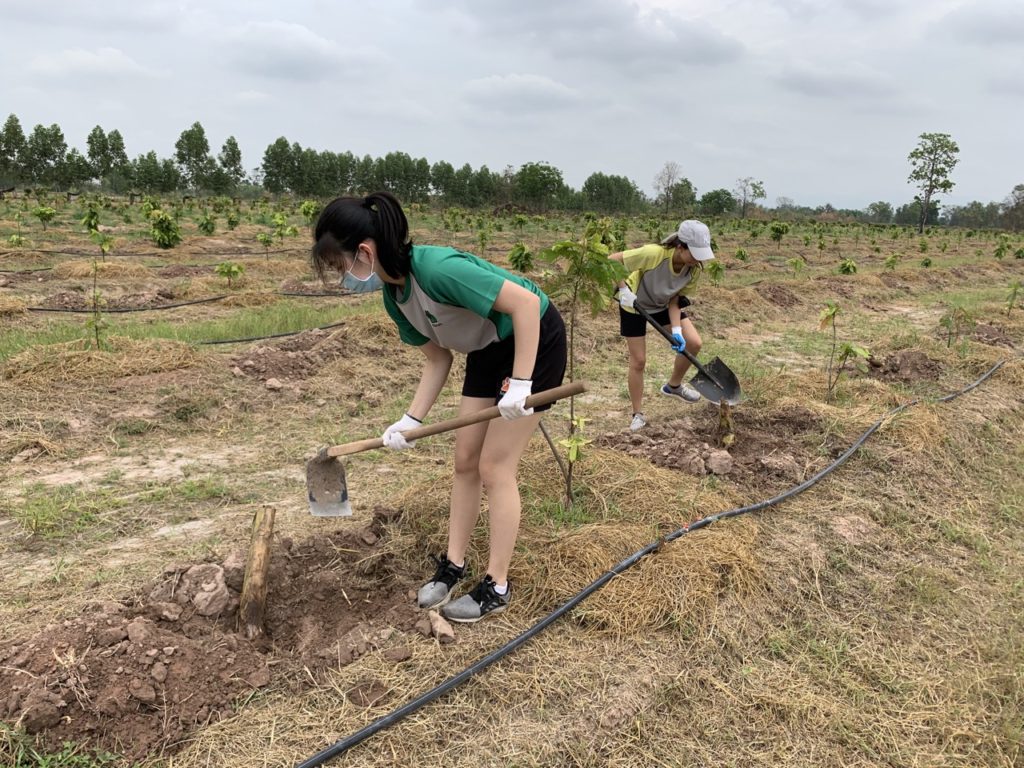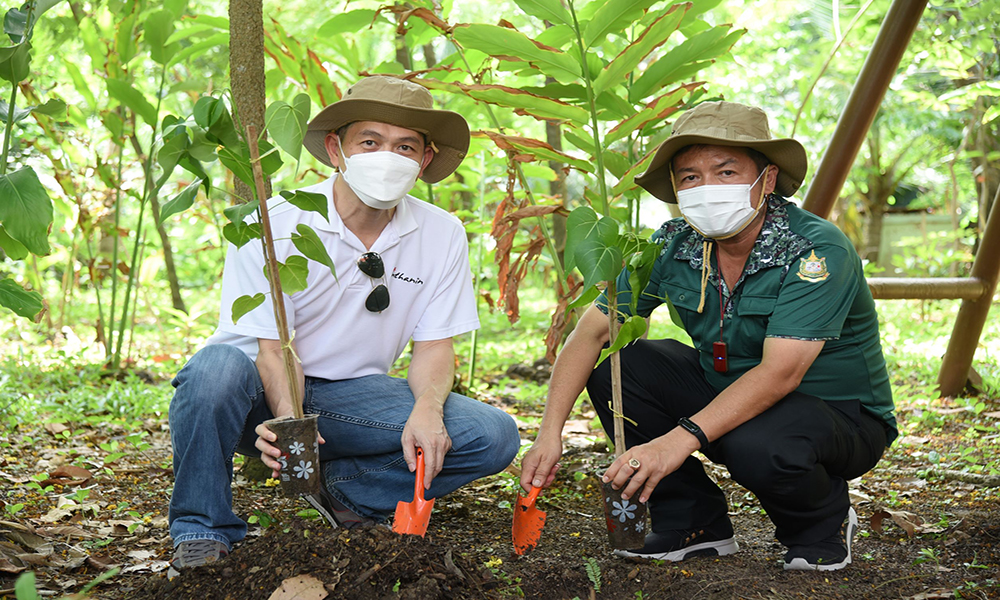An expert to Thailand’s Ministry of Higher Education believes that planting more trees on undeveloped sites will help the country avoid the worst effects of climate change.
Mr Royon Jitdon, consultant to the Ministry of Higher Education, Science, Research, and Innovation’s Hydro-Informatics Institute, stated that there is strong evidence that planting trees can help alleviate the effects of climate change, particularly by reducing drought in agricultural areas.
Thailand has around 102 million rai of forest zones, accounting for roughly 31% of the country’s land area, he noted. The national reform policy aims to expand the quantity of green areas to 45% within 20 years. Green regions consist of protected forest zones, economic forests, and community forests.
Mr Royon told Post Media that the government’s tree planting policy seeks to encourage local participation by allowing them to benefit from the forests they plant.
A pilot study in Nan Province, northern Thailand, demonstrates that residents can earn approximately 10,000 baht per rai per year by planting bananas and other economic plants in green regions. According to Mr Royon, the income is more than that of maize growing, which yields approximately 2,000 baht per rai.
Increasing Green Spaces
Reducing single-crop plantations in the highlands can also help reduce the risk of forest fires and PM2.5 pollution, he added. In its first phase, the Nan project has transformed 2,000 rai of an 8,000-rai area into green spaces.
Forests can also help keep silt from washing into dams. Mr Royon stated that sediment can limit the life of a dam, which is now an issue at the Sirikit Dam in Uttaradit province.
A fertile forest zone, such as the one near Vajiralongkorn Dam in Kanchanaburi province, can assist ensure water supply year-round.
“If we have enough water for plantation, the drought crisis from climate change is unlikely to affect us,” he told the crowd.
Mr Royon stated that state agencies have planted 200,000 rai of trees per year since the implementation of the community forestry and economic forestry laws in 2018.
Since then, the number of economic forests in the country has increased from 1 million rai to 4 million rai, owing to locals’ ability to turn trees into cash.
The Bank for Agriculture and Agricultural Cooperatives has accepted valuable trees as loan guarantees.
Mr Royon stated that woods can assist preserve temperature stability. Changes in ocean currents have caused unusual weather patterns around the country. Pacific Ocean currents determine Thailand’s rainfall pattern.
El Nino will have less of an impact this year, he said, adding that rainfall will be plentiful. However, a comprehensive management plan is required to avoid potential drought or flooding issues.
Thailand’s climate change adaptation strategy
Pirun Saiyasitpanich, chief of the Department of Climate Change and Environment, stated that the department will shortly present a second version of the country’s climate change adaptation strategy to the cabinet for review.
He stated that the plan focuses on reducing the effects of climate change on vulnerable people, including local farmers. It focuses on six areas: water management, agriculture and food security, tourism, public health, natural resource management, and relocation and security.
He noted that state agencies have been working together to develop drought and flood-resistant rice cultivars and other crops.
The relocation plan also includes studies on rising sea levels in case of land loss due to marine intrusion.
Mr Pirun believes that reforestation efforts in Thailand have gained traction in recent years, with the government pursuing a variety of programmes to combat deforestation and promote sustainable forest management.
Local communities are actively involved in tree planting programmes to help rehabilitate degraded land and maintain biodiversity.
These reforestation programmes not only assist to alleviate the effects of climate change, but also provide important ecosystem services including watershed protection and carbon sequestration.
Thailand is making considerable progress in environmental conservation and resistance to environmental issues by working together to create a greener future.
⚠ Article Disclaimer
The above article is sponsored content any opinions expressed in this article are those of the author and not necessarily reflect the views of CTN News








